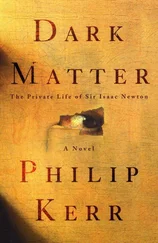Philip Kerr - A Man Without Breath
Здесь есть возможность читать онлайн «Philip Kerr - A Man Without Breath» весь текст электронной книги совершенно бесплатно (целиком полную версию без сокращений). В некоторых случаях можно слушать аудио, скачать через торрент в формате fb2 и присутствует краткое содержание. Год выпуска: 2013, Издательство: Quercus, Жанр: Триллер, на английском языке. Описание произведения, (предисловие) а так же отзывы посетителей доступны на портале библиотеки ЛибКат.
- Название:A Man Without Breath
- Автор:
- Издательство:Quercus
- Жанр:
- Год:2013
- ISBN:нет данных
- Рейтинг книги:4 / 5. Голосов: 1
-
Избранное:Добавить в избранное
- Отзывы:
-
Ваша оценка:
- 80
- 1
- 2
- 3
- 4
- 5
A Man Without Breath: краткое содержание, описание и аннотация
Предлагаем к чтению аннотацию, описание, краткое содержание или предисловие (зависит от того, что написал сам автор книги «A Man Without Breath»). Если вы не нашли необходимую информацию о книге — напишите в комментариях, мы постараемся отыскать её.
A Man Without Breath — читать онлайн бесплатно полную книгу (весь текст) целиком
Ниже представлен текст книги, разбитый по страницам. Система сохранения места последней прочитанной страницы, позволяет с удобством читать онлайн бесплатно книгу «A Man Without Breath», без необходимости каждый раз заново искать на чём Вы остановились. Поставьте закладку, и сможете в любой момент перейти на страницу, на которой закончили чтение.
Интервал:
Закладка:
He smiled and nodded his appreciation. ‘Good, good. I appreciate it. Look, I’ve not made that journey myself but I know it’s a brutal one, so I’ll have my own plane fly you down there. Shall we say tomorrow? You can have whatever you need.’
‘Yes, Herr Reich minister.’
‘I’ll speak to Von Kluge himself and make sure you have his full cooperation as well as the best accommodation that’s available. And of course I’ll draw up some letters patent explaining your powers as my plenipotentiary.’
I didn’t much like the idea of representing Goebbels in Smolensk. It was one thing taking charge of the Katyn Wood investigation and an international commission; but I hardly wanted soldiers looking at me and seeing the cut-out of a man with a club foot and a sharp line in suits and phrase-making.
‘These things have a habit of not remaining secret for very long,’ I said, carefully. ‘Especially in the field. For form’s sake it would be best if the powers granted to me in your letter made it quite clear that I am acting as a member of the War Crimes Bureau and not the ministry of propaganda. It wouldn’t look good if one of those journalists or perhaps someone from the International Red Cross gained the impression that we were trying to stage-manage the situation. That would discredit everything.’
‘Yes, yes, you’re right, of course. For the same reason you had better go down there wearing a different uniform. An army uniform, perhaps. It’s best we keep the SS and the SD as far away from the scene as possible.’
‘That most of all, sir.’
He stood up and ushered me to the door of his office.
‘While you’re down there I shall expect regular reports on the teletype. And don’t worry about Judge Goldsche, I shall telephone him immediately and explain the situation. I shall simply say that all of this was my idea, not yours. Which of course he’ll believe.’ He grinned. ‘I flatter myself that I can be very persuasive.’
He opened the door and walked me down the magnificent staircase so quickly I hardly noticed the limp, which was, I suppose, the general idea.
‘For a while after your time in Kripo you were a private detective, weren’t you?’
‘Yes, I was.’
‘When you get back we’ll talk again. About another service you might be able to do for me this summer. And which you’ll certainly find is considerably to your advantage.’
‘Yes, sir. Thank you.’
The sun was shining, and as I walked out of the ministry onto Wilhelmplatz it seemed to me that my own shadow had more substance and character than I did, as if the body occluding the light behind it had been cursed into spineless insignificance by some evil troll, and for no good reason I stopped and spat onto the black contour as if I had been spitting onto my own body. It didn’t make me feel any better. In lieu of bending my own ear with accusations of cowardice and craven cooperation with a man and a government I loathed, it was nothing more – or less – than an expression of the dislike I now felt for my own person. Sure, I told myself, I had said yes to Goebbels because I wanted to do something to help restore Germany’s reputation abroad, but I knew this was only partly true. Mostly I agreed with the diabolic doctor because I was afraid of him. Fear. It’s a problem I often have with the Nazis. It’s a problem every German has with the Nazis. At least those Germans who are still alive.
PART TWO
CHAPTER 1
Friday, March 26th 1943
The spring thaw in Smolensk still looked to be a long way off. A fresh layer of snow covered the broken cobbles and twisted tramlines of Gefangnisstrasse, a fairly typical-looking street in the south of the city – typical only by the standards of the Spanish Peninsular War that is: in Smolensk there were times when I found myself looking around for Goya and his sketchbook. In the turret of a burnt-out tank on the corner of Friedhofstrasse was the blackened corpse of a dead Ivan made more macabre by the sign in German he was holding in a skeletal hand directing traffic north, to Commandant’s Square. A horse was dragging a sled laden with an impossible quantity of logs while its one-armed owner, swaddled in quilted rags and with a length of string for a belt, walked slowly alongside smoking a pungent pipe. A babushka wearing several headscarves had set up a stall by the prison door and was selling kittens and puppies, but not as pets; on her feet were waterproof shoes made from old car tyres. Beside her, a bearded man was carrying a yoke with a pail of milk on each end and holding a tin mug in his hand; I bought a mugful and drank the best milk I’d tasted in a long time – cold and delicious. The man himself looked just like Tolstoy – even the dogs in Smolensk looked like Tolstoy.
‘Jews are your eternal enemies!’ proclaimed the poster on the noticeboard by the front door of the prison. ‘Stalin and Jews belong to the same gang of criminals’.
As if to make sure you understood the message there was a large drawing of a Jew’s head against the background of a star of David. The Jew was winking in a sly, dishonest way and, as if to remind everyone that this race was not to be trusted, the poster listed the names of thirty or forty Jews who had been convicted of various offences. Their fates were not mentioned, but you didn’t need to be Hanussen the clairvoyant to divine what this would have been: in Smolensk there was only one punishment for anything if you were a Russian.
The prison was an assemblage of five ancient buildings from the time of the Tsars, all grouped around a central courtyard, although two were little better than ruins. The high brick wall of the courtyard had a large shell-hole in it that had been covered with a screen of barbed wire and the whole area was observed by a guard in a watchtower with a machine gun and a searchlight. As I crossed the courtyard and headed into the main prison building, I heard the sound of a woman weeping. And if all of that wasn’t depressing enough, there was the simple window-frame gallows they were erecting in the prison yard. It wasn’t tall enough to guarantee the mercy of a broken neck, and whoever the gallows was meant for faced death by strangulation, which is about as depressing as it gets.
In spite of the hole in the prison-yard wall, security was tight: once you were through the hellish main door there was a floor-to-ceiling turnstile to negotiate and then a couple of steel doors that, when they closed behind you, made you think you were Doctor Faustus. I shivered a little just to be in the place, especially when a tall, skinny guard walked me down a circular flight of iron stairs into the depths of the prison and along a beige-tiled corridor that smelt strongly of misery, which, as anyone will tell you, is a subtle mixture of hope, despair, rancid cooking fat and men’s piss.
I was visiting the local prison to take the witness statements of two German NCOs accused of rape and murder. They were both from a division of panzer grenadiers: the Third. I met the two NCOs one after the other in a cage with a table and two chairs and a bare light bulb. The floor was covered in a grit or sand that cracked under my shoes like spilled sugar.
The first NCO they brought to me had a jaw the size of the Crimea and bags under his eyes as if he hadn’t slept in a while. That was understandable, given his situation, which was serious. There were red marks on his neck and chest as if someone had stubbed out several cigarettes on his body.
‘Corporal Hermichen?’
‘Who are you?’ he asked. ‘And why am I still in here?’
‘My name is Captain Gunther and I’m from the Wehrmacht War Crimes Bureau, which ought to give you a clue why I am here.’
‘Is that some kind of a cop?’
Читать дальшеИнтервал:
Закладка:
Похожие книги на «A Man Without Breath»
Представляем Вашему вниманию похожие книги на «A Man Without Breath» списком для выбора. Мы отобрали схожую по названию и смыслу литературу в надежде предоставить читателям больше вариантов отыскать новые, интересные, ещё непрочитанные произведения.
Обсуждение, отзывы о книге «A Man Without Breath» и просто собственные мнения читателей. Оставьте ваши комментарии, напишите, что Вы думаете о произведении, его смысле или главных героях. Укажите что конкретно понравилось, а что нет, и почему Вы так считаете.












